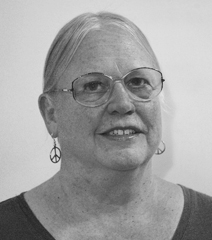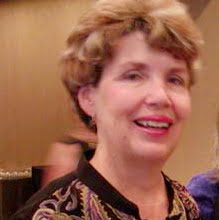QUESTION: I have a 20-year-old son who is unmotivated and somewhat of a recluse. He missed passing the GED by 12 points and has just given up. He doesn’t like the job he has but hasn’t looked for another one. I recently found cocaine in his bedroom and I flushed it down the toilet. If his dad knew, there would be violence. I’m praying for my son, but I’m very worried where his choices are taking him.
What’s a mother to do?
– Frantic Mom
Dear Frantic Mom,
There is no one answer why a person has no motivation and turns to illegal drugs for solace. Have you ruled out a medical cause such as depression? A health check up might be in order. A lack of self-esteem may be the root cause. You might be able to help your son see his personal strengths.
The poor economy is a big problem currently. Many people are unemployed or working part time. Your son should be congratulated for having a job in these circumstances. Better educated people, of course, can command better salaries so your son’s negative reaction to not passing his GED exams makes sense. He can try again, though. Glendale Community College Garfield Campus has a free GED preparation program where your son might find the help he needs to pass. There are also low cost vocational classes available there, too. Perhaps you can encourage him to check out these resources.
Volunteering to help others is a great way to see one’s own situation in a better light. Are there elderly neighbors who need a hand with yard work or carrying groceries in from the car? I think anything that your son can do that involves human interaction would be good. An online search for “volunteer opportunities Los Angeles” resulted in pages of suggestions including sorting and packaging donated shoes for the needy and teaching American culture to immigrants via the Los Angeles Public Library. Your son may be surprised to learn he has a great deal of knowledge gained simply by growing up in this country that is of considerable value to immigrants hoping to become citizens. Teaching is a wonderful way to learn, too. Helping others learn will strengthen his academic skills.
Your son is lucky to have a family that cares about him and provides shelter and probably a great deal more. Many young people are in the foster care system and when they reach his age are no longer eligible. With no family support, some end up on the streets. It might help your son feel better about himself if he realizes others have no parents, siblings or extended family to love them. My thoughts are with your family. I hope 2013 is the year your son finds his niche in this complicated world.

Sharon Weisman
atheist/agnostic/secular
humanist/free thinker
sharon@jetcafe.org
Dear Frantic Mom,
I don’t know your general demeanor, but I suggest you get a “General” demeanor and impart this boy with some “shape up or ship out” correction. I get the frailty of mankind, the angst of youth, and plain immaturity; we were all there once. But loafing around and getting stoned will not get him into the mode he needs to be. Get the boy out of the house at all costs. Do you have a sibling that he could stay with and maybe work for awhile?
Tell him that life is not a cakewalk, and that he needs to “try-and-try-again.” A 12-point GED failure is an 88% success, at least as far as passing is concerned. Many fail driving exams, but need forces them to review, repeat, and pass. Your boy must do likewise or he will be a failure in life, never amount to anything, and die a sad, poverty-stricken nobody. Well, that’s what you tell him anyway. Motivate with dire dissatisfaction. Push, don’t coddle at this point.
Your son is balancing between childhood and adulthood, and he needs to be tapped into the latter arena. If you think Dad violent, then figure out how to bring him into the program without exposing your son’s violation of his ethics.
Anyway I’m for your boy; just know that siding with someone sometimes necessitates action that may be perceived as initially unfavorable, but what does a 20-year old know?
“A rod of correction imparts wisdom, but a youth left to himself is a disgrace to his mother” (Pro 29:15 HSC).

Pastor Bryan Griem
Montrose Community Church
griem@dslextreme.com
QUESTION: My husband I recently found out that our 37-year-old son has a fast-moving cancer. He and his wife have two sons, ages 8 and 11. The boys have not been told about their father because we don’t know what to tell them or how to say it. We plan to get together – our son, his wife, the boys, and us – to break this sad news to them and form a plan of action, since their father more than likely will pass away in six months to a year.
Any advice on how we can deliver this message to our grandsons with compassion and understanding is most welcome.
– Compassionate Grandparent
Dear Compassionate Grandparent,
First on behalf of the community, I would like to express our heartfelt wishes of good health for your son and comfort and strength for your family. While the diagnosis may seem bleak, keep in mind that as every day passes, great strides are being made in improving the cancer survival rates and the quality of life as the cancer is being treated.
Communication to your grandchildren should start with a plan for the adults to provide a suitable time and setting for sharing the sad news. The adults need to prepare themselves mentally with the right “age appropriate” information to give the children and to center themselves spiritually as role models for the children with a balance of hope and truthful realism. Children will take their emotional cues from the adults around them on how to cope. This does not mean the adults need to hide or suppress their natural feelings about the cancer diagnosis, but they can provide great comfort and a sense of security to the children in the way they express those feelings while offering the children tangible ways to handle their changing circumstances.
Consulting with your health care professional or seeking other resources of information on dealing with cancer can also be very helpful. American Cancer Society (cancer.org), for example, has a great article entitled, “How should children be told that a parent has cancer?” that provides a tangible framework of age appropriate information that your grandchildren need.
I also recommend the parents and family adults seek the advice of your religious leader for increased spiritual strength. Prayer and spiritual support from family, love ones and religious community, along with factual information, can provide the foundation for what your children need when confronting a life-threatening illness.
Lastly, know that the community of readers is sending thoughts and prayers of well wishes during this holiday season.

Levent Akbarut
Islamic Congregation of La Cañada Flintridge
Dear Compassionate Grandparent,
I am so sorry that you are facing such a distressing situation. As the mother of four adult children, I know it must be difficult for you; and I admire your wish to share the news with your grandsons in as compassionate a way as possible.
Even though you have not told them about their dad’s prognosis, they are probably aware that something is out of the ordinary. So I suggest that you share the information with them as soon as you feel able to do that. Just having them know what is going on will provide some measure of comfort.
I think your plan of gathering all of your immediate family at one time is a good way to let them know. Although there is no easy way to share this news with your grandsons, I suggest that you simply tell them what you know in a gentle and caring way. Assuring them that they are loved and that you will all be there to support them will help. And encourage them to share their feelings, including tears, with you, their mom, and their dad. There are numerous books that can be helpful, but the best way is human connection.
I also suggest that if you and your husband are part of a religious community, you talk to your clergyperson about your situation. He or she can provide some much-needed support for you and your son’s family. In addition, the other members of your congregation could help you cope with your grief.
I will be holding you and your family in my heart and prayers as you find the right way to share your fears and your hopes. And in the time ahead, I hope you will find joy together amid the sorrow.

Rev. Dr. Betty Stapleford
Minister of the Unitarian Universalist Church of the Verdugo Hills La Crescenta
bstaple4d@aol.com
